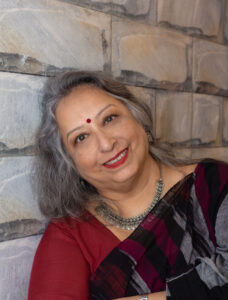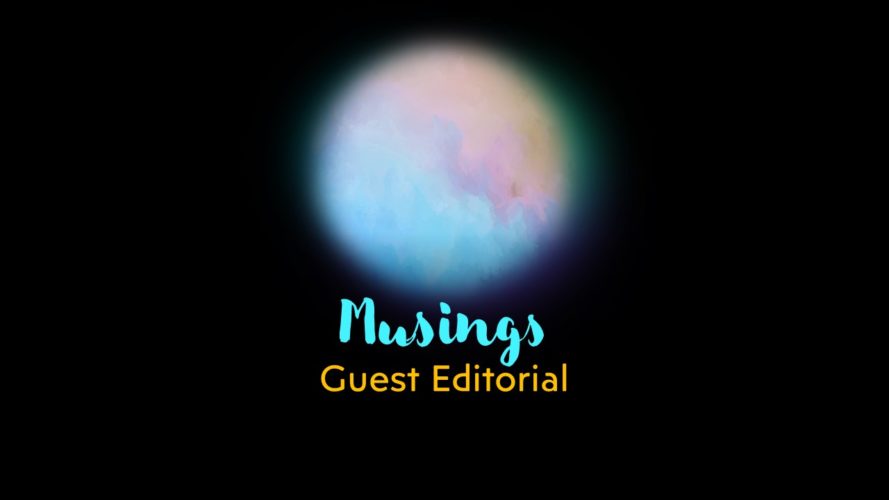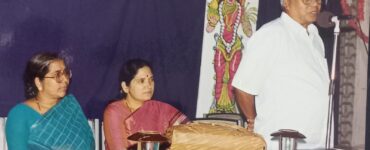 At age ten, when I was too young to know better, I decided journalism would be the right career for me. This decision came from the fact that I wrote ‘poetry’ – verses, really – some of which had been published. Journalism appealed to me because I loved working with words.
At age ten, when I was too young to know better, I decided journalism would be the right career for me. This decision came from the fact that I wrote ‘poetry’ – verses, really – some of which had been published. Journalism appealed to me because I loved working with words.
It took me decades to recognise that journalism and poetry had very little to do with one another; the former, I realised, involved moving outwards and listening to other people’s stories; the latter necessarily meant going inwards and listening to oneself. Another major difference was that while one paid the bills, the other most definitely did not.
So, I started my life on parallel tracks, writing my first ‘mature’ poem at age 16, around the same time my first article appeared in a newspaper. I realised that compartmentalising the two was the only way to maintain the balance. Journalism gave me memorable experiences and valuable insights into human nature, and some of this leaned over into my poetry. Several days of trawling the back alleys of Bombay with drug addicts became a metaphor for the title poem in my first book, Nirvana at Ten Rupees, and certainly, the feminism in my poems was deeply influenced by the four years I spent editing the women’s section of a newspaper and writing about domestic violence and other gender issues.
Eventually, I came to terms with both. As a journalist, the words came easily and disappeared into oblivion the next day; the poet, on the other hand, knew that one had to be quiet and slow. These days, I watch with interest how quickly people seem to be producing poetry collections; the average time between my own books is ten years, sometimes more. For me, poetry happens between the abyss of society and solitude; both are essential, but it is vital to know when to step away and walk the tightrope back to silence. When I need reminding, Wendell Berry’s ‘How to Be a Poet’ always brings me home: Breathe with unconditional breath/the unconditioned air./ Shun electric wire./Communicate slowly… make a poem that does not disturb/ the silence from which it came.
The need for silence does not mean being uninvolved. On the contrary, as poetry holds a mirror to the world, solitude offers a space for deeper reflections. For all its individualism and intimacy, poetry must engage with society. Can poets, however, cause change? As someone associated with the global movement 100 Thousand Poets for Change, since it began in 2011, I have asked myself this question and realised that poets speak a common language of peace. While poetry may not stop wars, it can express the human dilemma and raise consciousness. As Bart Plantenga, a 100 Thousand Poets for Change organiser from the Netherlands, says in the book 100 THOUSAND POETS FOR CHANGE 10+ Years of Poetic Activism A Collective Memory (2011-2022) edited by Pilar Rodriguez Aranda, Lisa Vihos and Canuto Roldán: “There is no scientific evidence that poets add value to society, although poets do heal, soothe, unsettle & derange to arrive at a clear, almost clairvoyant happy meeting of aesthetics & message, composing a higher meaning rarely attained by journalists or pundits”.
Poetry can, indeed, cause revolutions. La Marseillaise, written in 1792, became the rallying call to the French Revolution. Vande Mataram, by Bankim Chandra Chatterjee, played a vital role in the Indian independence movement. Dylan Thomas said: “A good poem helps to change the shape of the universe, helps to extend everyone’s knowledge of himself and the world around him.” Even the United Nations has pointed out, “Poetry reaffirms our common humanity by revealing to us that individuals, everywhere in the world, share the same questions and feelings.” And for me, Faiz Ahmed Faiz’ Bol Ki Lab Āzād Haiñ Tere is a writers’ anthem for all times: Bol, ke labh aazaad hain tere/ Bol, zubaan ab tak teri hai – translated in Mustansir Dalvi’s words as Speak out!/ Your words are free./ Speak up!/ Your tongue is still your own.”
A poem cannot, however, be mere sloganeering; quality is key. In an age where anything goes in the name of poetry, I worry about this. I have always believed that poetry must be allowed to breathe, but with audiences constantly at hand on social media, many writers feel the need to share immediately.
Navigating my twin worlds of writing too much and too quickly as a journalist and taking the slow and silent route to what I hoped might be good poetry, I created five principles for myself, which I have always found useful.
1) If you want to write good poetry, first read good poetry.
2) Pay attention to craft and to what may seem like little details.
3) Be willing to revise as many times as necessary.
4) Let your work mature before you allow it to be published.
5) Learn to value silence so that you can hear the sound of your inner voice. Then stay faithful to it and true to yourself.
*









Add comment